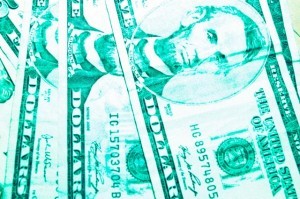 Although there has been a lot of focus on inflation in the post-crisis era, the U.S. has had minimal inflation and, quite possibly, deflation, exacerbated by political and economic policies put in place to fight inflation in a deflationary environment.
Although there has been a lot of focus on inflation in the post-crisis era, the U.S. has had minimal inflation and, quite possibly, deflation, exacerbated by political and economic policies put in place to fight inflation in a deflationary environment.
If the European economy falls deeper into crisis, then real deflation – not the borderline stuff of recent years – is a real possibility. It is not fun. So what do you do as an investor?
First, you don’t want to borrow money, because your actual interest rate will be higher than the quoted rate. You’ll be paying off the loan with money that becomes more valuable over time, not less.
Second, you want to watch out for negative interest rates. During Japan’s long deflation, this took the form of service charges and fees for safekeeping rather than CDs at -3% or whatever. Be prepared to shop around for those banks with the lowest fees.
And what about avoiding banks all together? This is tough one. I am a fan of cash, mostly because it makes people mindful of their purchases. Cash can be lost and stolen, though, which is a problem. That’s why banks in Japan could justify applying charges for safekeeping.
If you are going to keep cash on hand, you need a safe and some really good hiding places. They have to be good enough to keep the money away from thieves or sticky-fingered family members, but not so good that you’ll forget where you hid the money. Every now and again, a contractor comes across a stash of cash in the walls or floorboards of an old house, which makes for fun human-interest stories and, sometimes, a lot of grief.
A safe will protect your money from thieves and from fire, but the cost may exceed those of bank service charges.
But, if you can find a way to minimize the risk of keeping cash on hand, hard currency may offer the best investment return in deflation. As time passes, prices will fall and your money will be worth more.
The reason that deflation is so pernicious to economies is that people wait to spend money as prices go down. You don’t want to be buying hard assets at higher prices than they will be in the future.





